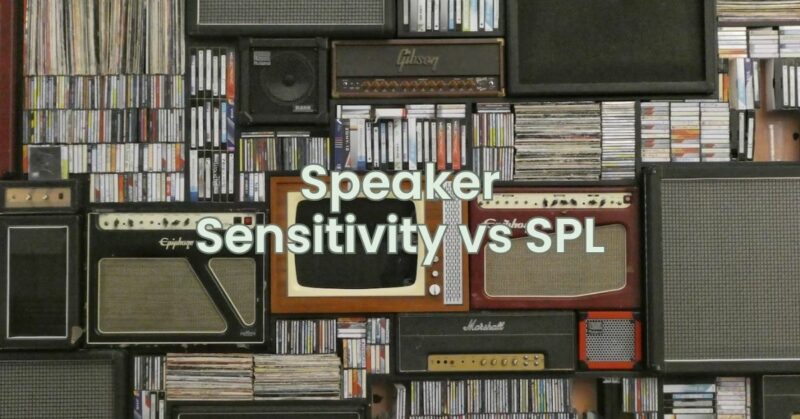Speaker sensitivity and SPL are two important terms to understand when choosing speakers for your home theater or audio system. Sensitivity refers to how efficient a speaker is at converting electrical energy into sound energy. SPL, or sound pressure level, is a measure of the loudness of sound.
Speaker sensitivity is measured in decibels (dB). A higher sensitivity rating means that the speaker will be louder for a given amount of power. For example, a speaker with a sensitivity of 90dB will be twice as loud as a speaker with a sensitivity of 80dB when both speakers are powered by the same amplifier.
SPL is measured in decibels (dB) as well. However, SPL is measured at a specific distance from the speaker, usually 1 meter. For example, a speaker with an SPL of 100dB at 1 meter will be 100dB loud when you are 1 meter away from it.
The relationship between speaker sensitivity and SPL is not linear. A speaker with a higher sensitivity rating will not necessarily be louder than a speaker with a lower sensitivity rating. This is because the SPL of a speaker also depends on the power of the amplifier that is driving it.
In general, a speaker with a higher sensitivity rating will require less power from the amplifier to achieve the same SPL. This means that a speaker with a higher sensitivity rating will be more efficient and will produce less heat.
However, there are other factors that can affect the SPL of a speaker, such as the size of the speaker, the type of speaker, and the room acoustics.
When choosing speakers for your home theater or audio system, it is important to consider both speaker sensitivity and SPL. If you want to get the loudest possible sound, you will need to choose speakers with a high sensitivity rating and a powerful amplifier. However, if you are concerned about efficiency and heat output, you may want to choose speakers with a lower sensitivity rating.
Here are some additional things to keep in mind about speaker sensitivity vs SPL:
- Speaker sensitivity is not the only factor that affects SPL. The power of the amplifier and the room acoustics also play a role.
- Higher sensitivity speakers are not always better. They may be more efficient, but they may not produce as much bass or sound quality as lower sensitivity speakers.
- It is important to experiment with different speakers to find the ones that sound best in your room.
By understanding the relationship between speaker sensitivity and SPL, you can choose the right speakers for your needs.


